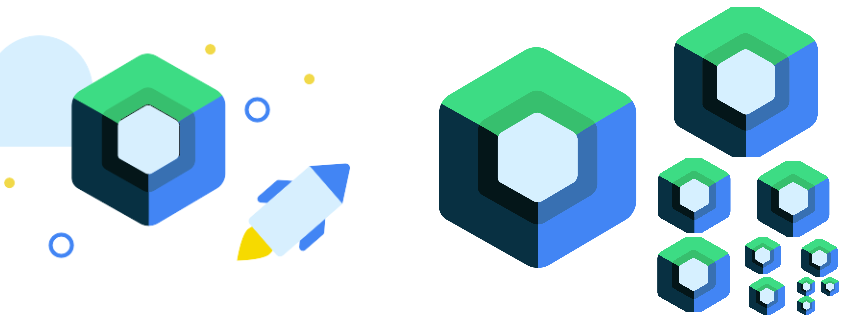Bites of Compose 5
Learn Jetpack Compose one bite at a time

Let’s talk about Modifier.
Situation 1
What is the simplest Modifier?
Answer
ModifierWhat is it? a class? an object?
It is a companion object, which implements the Modifier interface.
companion object : Modifier {
override fun <R> foldIn(initial: R, operation: (R, Element) -> R): R = initial
override fun <R> foldOut(initial: R, operation: (Element, R) -> R): R = initial
override fun any(predicate: (Element) -> Boolean): Boolean = false
override fun all(predicate: (Element) -> Boolean): Boolean = true
override infix fun then(other: Modifier): Modifier = other
override fun toString() = "Modifier"
}The formal version is Modifier.Companion, but can be shortened as Modifier.
I know, this can be confusing, but let’s write a simpler example to understand it step by step.
First we need to understand that the so called companion object, is just a kind of global object attached to a class or interface itself, this is similar to the static members of a class in Java.
For example:
class Person {
companion object {
const val TAG = "person"
fun talk() = print("I'm talking...")
}
}The “Person class” has a TAG property and a “static function” talk(). And to access this companion object we can just write Person.Companion or simply Person.
Person.TAG
Person.talk()
Person.Companion.TAG
Person.Companion.talk()Also, the companion object can implement interface.
interface Runnable {
fun run()
}
class Person {
companion object : Runnable {
const val TAG = "person"
fun talk() = print("I'm talking...")
override fun run() {
print("Running...")
}
}
}
Person.run()And not only classes, but interfaces can also have companion object. And if its companion object implements itself…
interface Car {
fun drive()
fun stop()
companion object : Car {
override fun drive() {
print("drive")
}
override fun stop() {
print("stop")
}
}
}This is exactly how Modifer is doing.
Situation 2
What does this mean?
Box(modifer: Modifier = Modifier)Answer
Passing in the most basic Modifier object as default parameter.
Situation 3
Is this companion object Modifier used anywhere else?
Answer
Yes, it is also used when you do something like:
Modifier.padding(4.dp)
Modifier.background(Color.Red)
...Let’s look into the source code:
fun Modifier.background(
color: Color,
shape: Shape = RectangleShape
) = this.then(
Background(
color = color,
shape = shape,
inspectorInfo = debugInspectorInfo {
name = "background"
value = color
properties["color"] = color
properties["shape"] = shape
}
)
)As you can see, background() is an extension function of the companion object Modifier (not the interface Modifier!).

Twitter
Google+
Facebook
Reddit
LinkedIn
StumbleUpon
Email